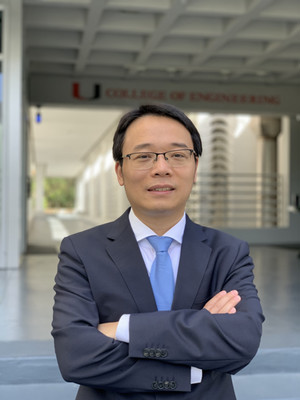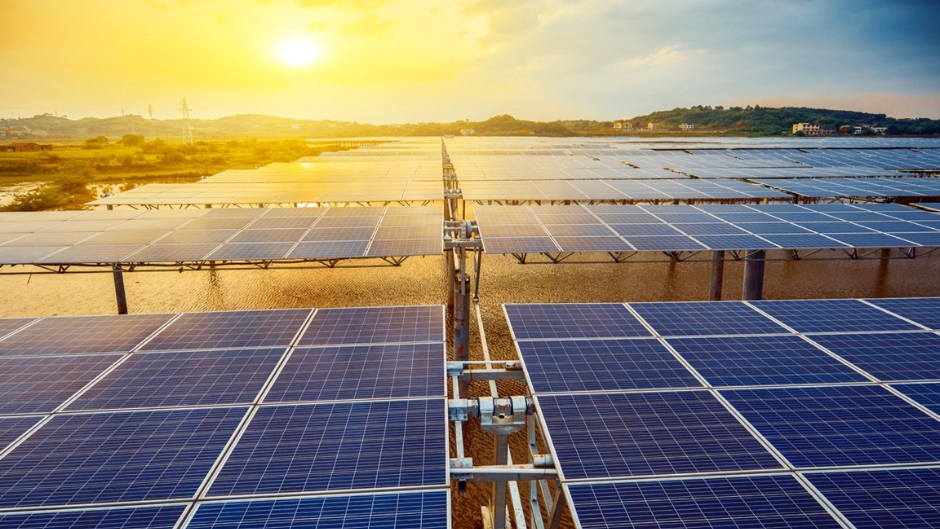While lithium-ion batteries power our cell phones and computers, researchers have long searched for new battery chemistries that offer increased energy and longer lifespans. Creating new materials for these advanced batteries is at the forefront of chemical engineering associate professor Chao Luo’s new National Science Foundation (NSF) grant.
The collaborative grant will allow Luo and his research team to design and study organic molecules to better understand how their structures affect the batteries’ performance. The goal is to create new materials for hybrid redox-flow batteries, which have emerged as a promising alternative to traditional lithium-ion batteries and develop next-generation sustainable batteries.
“Compared to the inorganic material-based lithium-ion batteries, these batteries will lower energy consumption and carbon footprint during the battery production, usage, and recycling processes,” said Luo. “Our technology will also avoid the use of rare and toxic heavy metal elements to achieve green and sustainable batteries.”
Real-world applications
The batteries, which use low-cost materials but produce high-power energy, could transform industries from consumer electronics and electric transportation to grid-scale energy storage. In disaster responses, they can help serve as power supplies, ensuring continuous electricity for critical facilities such as schools and hospitals. The batteries can also be coupled with renewable energy sources, such as wind turbines and solar panels. The research will also provide insight into other applications that rely on tunable organic molecules, such as li-ion batteries, CO2 capture, and electrochemical sensing.
Extreme and fast-charging batteries
Luo’s other research projects include developing extreme batteries that can withstand extreme temperatures from as high as 100 degrees Celsius to as low as –60 degrees Celsius. “When you refill your tank, it only takes a few minutes,” said Luo. “But if you drive electric vehicles, it could take maybe a couple of hours to fully recharge your battery. That's why we are looking to develop fast-charging batteries so electric vehicles can be fully charged within 15 minutes or less.”
Looking toward the future, Luo hopes his research attracts engineering and science students to the field of clean energy. By inspiring the next generation of STEM researchers, he hopes to contribute to a growing workforce dedicated to advancing sustainable energy.
Earlier this year, the College of Engineering launched the Miami Institute for Clean Energy to drive the advancement of clean energy technologies and tackle challenges in sustainable energy production.
 |
Chao Luo joined the University of Miami in August 2023 and is an associate professor in the Department of Chemical, Environmental, and Materials Engineering. |

